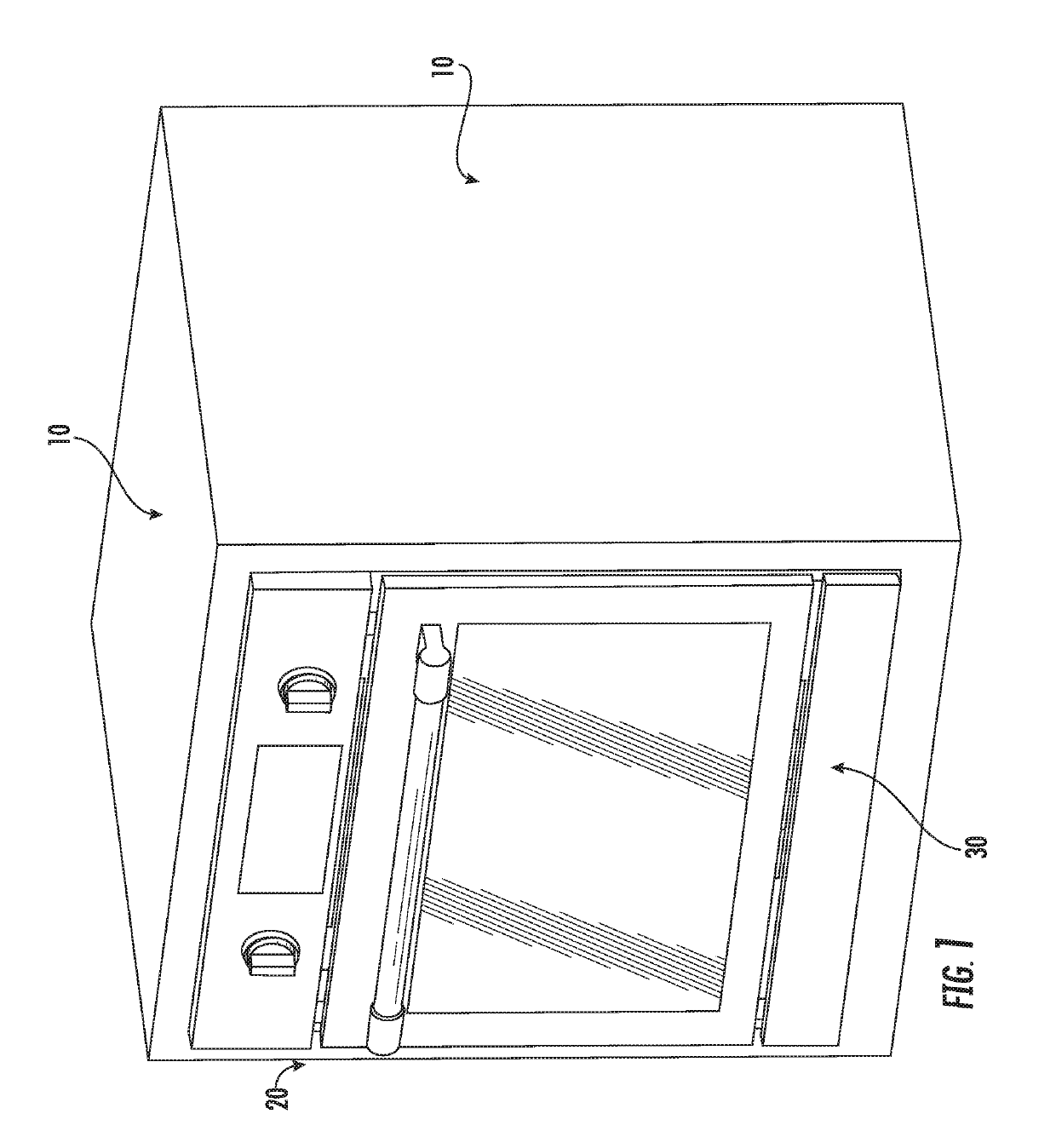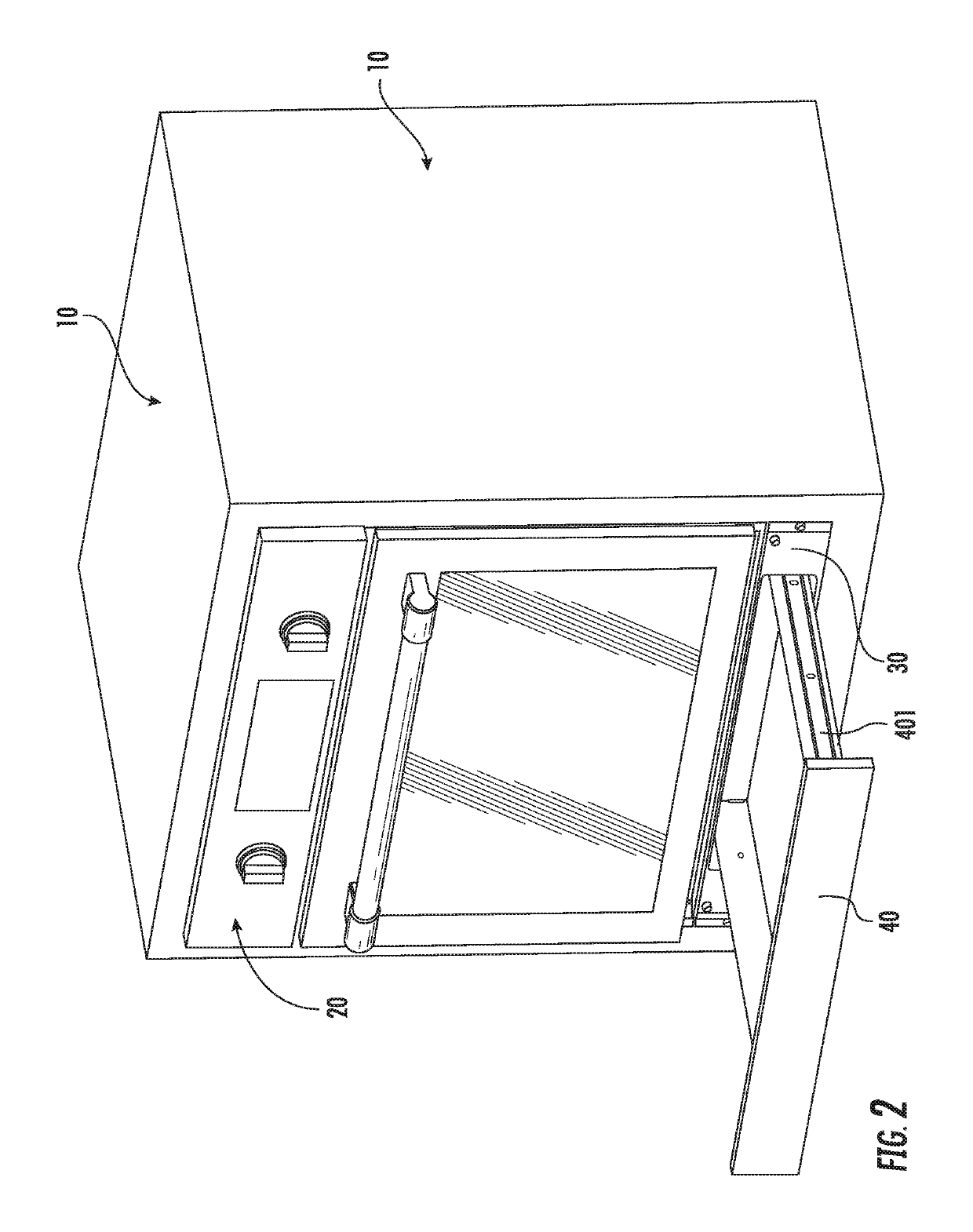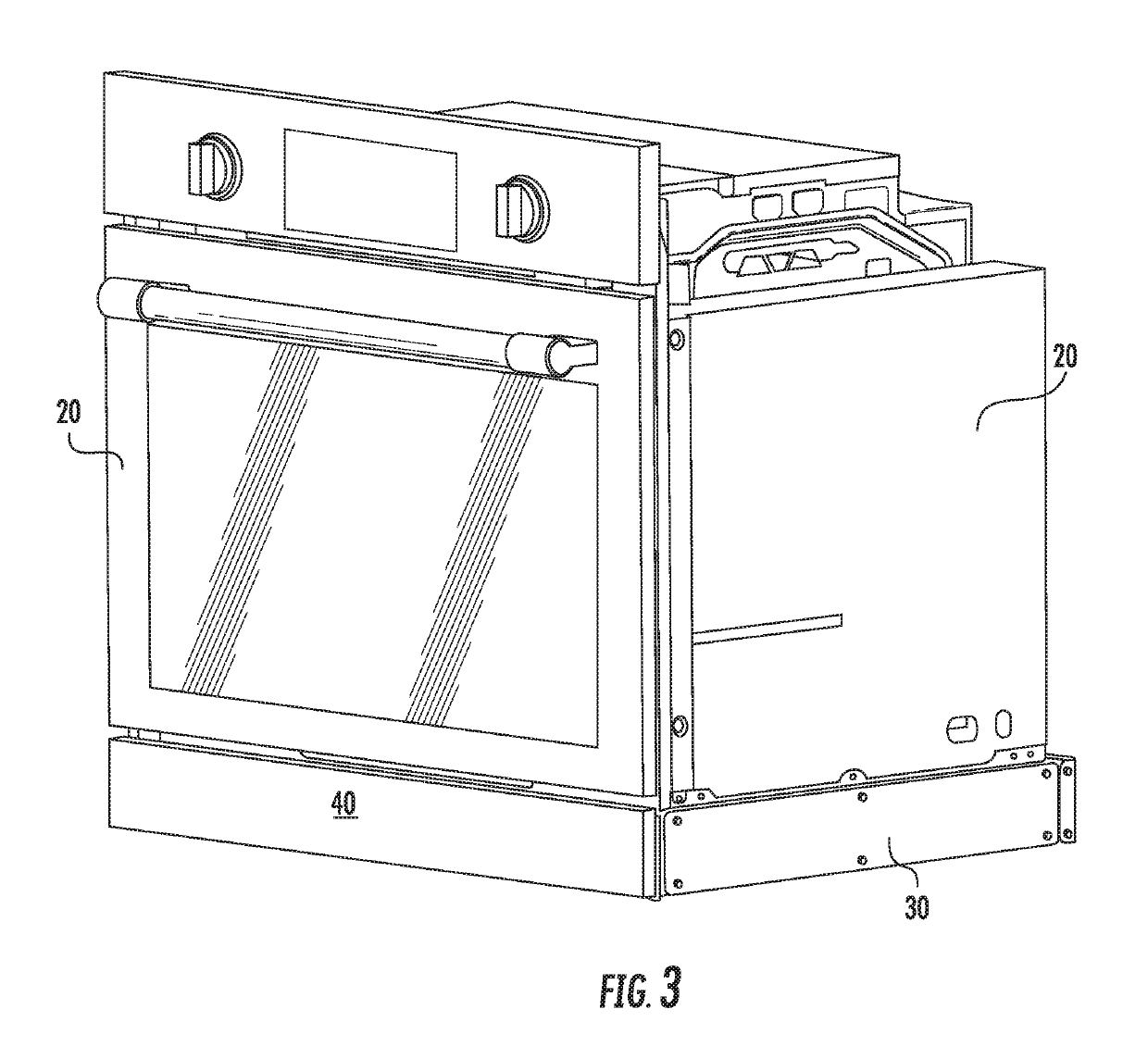Minimal fastner assembly methodoligy
a technology of assembly method and small fastner, which is applied in the field of appliance housing assembly, can solve the problems of increasing the height of the housing, reducing the stability and structural integrity of traditional appliance housing, etc., and achieves the effects of reducing the total number of fasteners required, maintaining functionality and structural integrity, and improving the appearance of the applian
- Summary
- Abstract
- Description
- Claims
- Application Information
AI Technical Summary
Benefits of technology
Problems solved by technology
Method used
Image
Examples
example procedures
[0051]The following discussion describes techniques for assembling an appliance housing in accordance with the present disclosure. The procedures are shown as a set of blocks that specify operations to be performed by one or more persons or one or more devices and are not necessarily limited to the orders shown for performing the operations by the respective blocks. In portions of the following discussion, reference will be made to FIGS. 1-8 and respective reference numbers.
[0052]FIG. 9 depicts a procedure 500 in an example assembly in which an appliance housing is constructed in accordance with a minimal fastener assembly methodology as described in this disclosure.
[0053]At 302 a pair of identical panels are fashioned, the panels serving as an upper panel (301) and a lower panel (302). In an exemplary embodiment, each panel is constructed out of a single piece of sheet metal that is folded and cut as needed per the requirements and dimensions of an appliance housing. During this pr...
PUM
 Login to View More
Login to View More Abstract
Description
Claims
Application Information
 Login to View More
Login to View More - R&D
- Intellectual Property
- Life Sciences
- Materials
- Tech Scout
- Unparalleled Data Quality
- Higher Quality Content
- 60% Fewer Hallucinations
Browse by: Latest US Patents, China's latest patents, Technical Efficacy Thesaurus, Application Domain, Technology Topic, Popular Technical Reports.
© 2025 PatSnap. All rights reserved.Legal|Privacy policy|Modern Slavery Act Transparency Statement|Sitemap|About US| Contact US: help@patsnap.com



